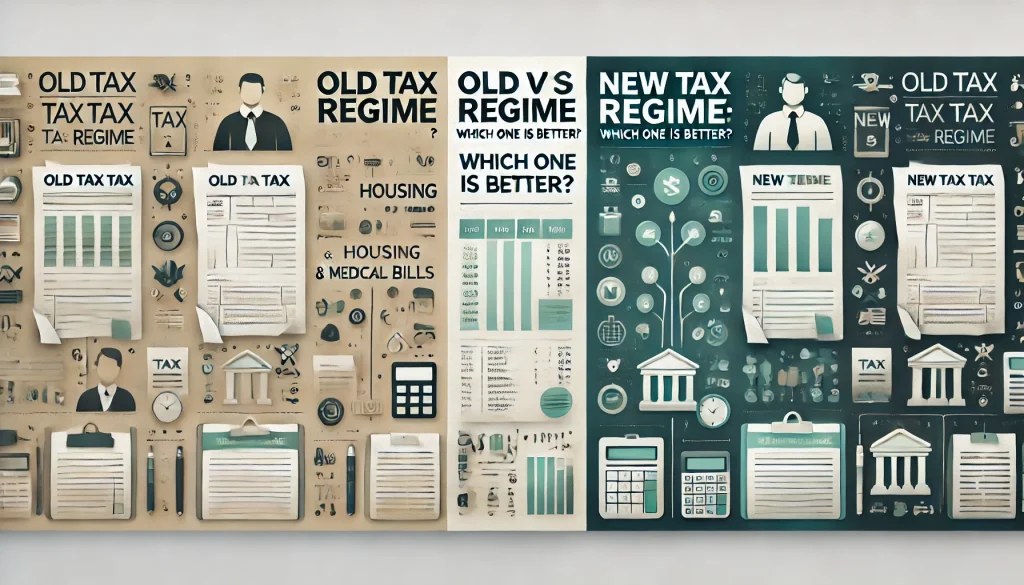
Tax-saving investments in India play a crucial role in effective financial planning, both for individuals and businesses. With numerous options available, choosing the right tax-saving investments can often be overwhelming. By making informed decisions and strategically investing in these options, you not only lower your tax liabilities but also create a foundation for long-term wealth building. Scroll through this blog to learn about the different tax-saving investment options available for you.
Top 7 Tax-Saving Investments That Can Help You Grow Your Wealth
The following are the 7 crucial tax-saving investments that can help you save taxes and earn greater returns:
1. Equity Linked Savings Scheme (ELSS)
An Equity-Linked Savings Scheme (ELSS) is among the most popular tax-saving investment plans available for investors looking to reduce taxable income under Section 80C. It invests predominantly in equity securities, offering the potential for market-linked returns alongside tax savings. By allocating at least 80% of their portfolio to equities, ELSS funds provide one of the highest potential returns among tax-saving investment options.
These funds come with a mandatory lock-in period of three years, which helps investors stay invested long enough to benefit from equity market growth. The amount you invest in ELSS up to ₹1.5 lakh is exempt from taxation under Section 80C. Additionally, gains of up to ₹1 lakh on your ELSS investment are not subject to long-term capital gains tax, making it a tax-efficient choice.
2. Public Provident Fund (PPF)
A PPF is a government-backed savings scheme that provides tax-saving benefits under Section 80C. It is one of the most reliable and widely used tax-saving instruments in India. The PPF has a mandatory lock-in period of 15 years, which could be a drawback if you require high liquidity in your investments. However, this longer lock-in period supports the accumulation of tax-free interest over time.
The interest rate on PPF is fixed by the government each quarter, offering a predictable and secure return. You can invest up to ₹1.5 lakh annually in a PPF account, either through lump sum or monthly deposits. PPF is a fully tax-free investment option under Section 80C.
3. Senior Citizen Savings Scheme (SCSS)
It is another best tax saving scheme and investments under Section 80C, providing deductions of up to ₹1.5 lakh on the amount invested. However, SCSS has specific eligibility criteria. This scheme is exclusively available to individuals aged 60 and above, as well as those who are above 55 and have taken voluntary retirement. Defence personnel aged 50 years and above are also eligible for this scheme.
You can invest up to ₹15 lakh in SCSS, and the interest rate, set by the central government, provides a stable and predictable income. It is an ideal choice for retirees looking for a secure return on their investments with a tax-saving advantage.
4. National Pension Scheme (NPS)
The NPS is a long-term retirement-focused investment that provides tax-saving benefits under Section 80C. You can claim a deduction of up to ₹1.5 lakh on contributions to NPS, with an additional ₹50,000 deduction available under Section 80CCD(1B) for self-employed individuals. For salaried employees, both employer and employee contributions qualify for tax exemption up to a specific limit.
NPS allows partial allocation to equity investments, depending on the investor’s preference, offering potential for market-linked growth. It is ideal for those looking to save for retirement while benefiting from tax savings.
5. Sukanya Samriddhi Yojana (SSY)
Sukanya Samriddhi Yojana (SSY) is a government-backed savings scheme that allows parents to save for their daughter’s future while also enjoying tax benefits. Only a parent or guardian of a girl under the age of 10 can open an SSY account. This scheme offers a higher interest rate than similar government savings plans like PPF.
Investments of up to ₹1.5 lakh per year in SSY are tax-exempt under Section 80C, but any amount beyond this is not eligible for tax benefits. The interest earned is also tax-free, making it an attractive option for those looking to invest for the long term while securing tax savings.
6. National Savings Certificates (NSC)
National Savings Certificates (NSC) offer a secure investment avenue for those seeking tax savings without exposure to stock market volatility. Under Section 80C, you can claim a deduction of up to ₹1.5 lakh on the invested amount. Additionally, reinvested interest is eligible for tax benefits.
NSCs come with fixed maturity periods of five or ten years, and investors can choose between these durations based on their goals. The scheme offers a steady return set by the government, making it suitable for conservative investors.
7. Unit Linked Insurance Plans (ULIP)
Unit Linked Insurance Plans (ULIPs) offer dual benefits of life insurance and market-linked investment returns. Under Section 80C, premiums paid toward ULIPs are tax-deductible up to ₹1.5 lakh. Additionally, up to 10% of the total premium amount, provided it falls below ₹1.5 lakh, qualifies for tax exemption.
ULIPs allocate a portion of the premium to life insurance, while the remaining portion is invested in equity and debt markets. This investment is ideal for individuals seeking both tax benefits and the potential for wealth accumulation through market returns.
Final Word
Tax-saving investments in India are key to optimising your financial portfolio and lowering your tax obligations. It is important to evaluate your financial goals, risk appetite and investment timeline to choose the right investment option. By making well-informed decisions, you can ensure a financially secure future while minimising taxes.
Frequently Asked Questions
Q. Which investment option is 100% tax-free?
A. PPF and SSY are investment schemes which are 100% tax-free as they come under the ‘exempt-exempt-exempt’ (EEE) category.
Q. How many tax-free investment options can you have?
A. There is no limit to the number of tax-free investment options you can have. However, each investment has a specific deduction limit for claiming tax benefits.
Q. What is the investment limit under Section 80C?
A. Under Section 80C of the Income Tax Act, you can avail a deduction of up to ₹1.5 lakh from your total taxable income.


